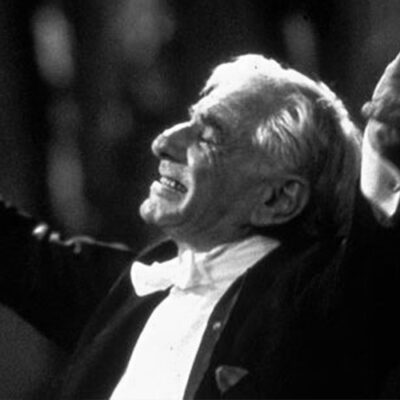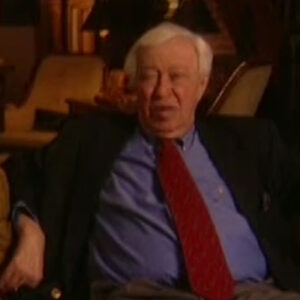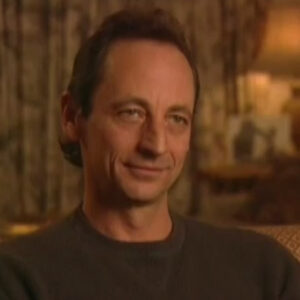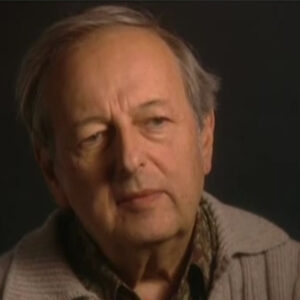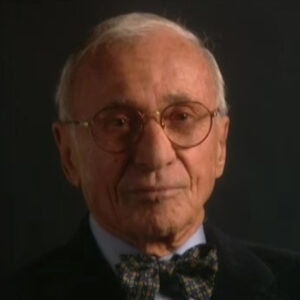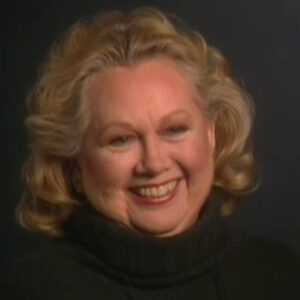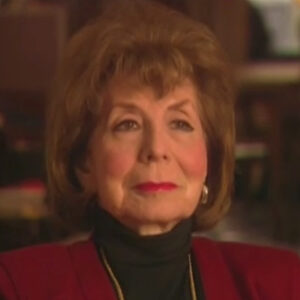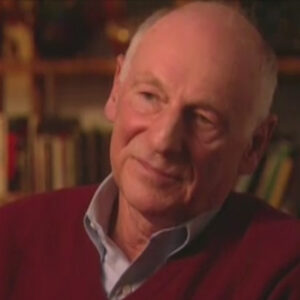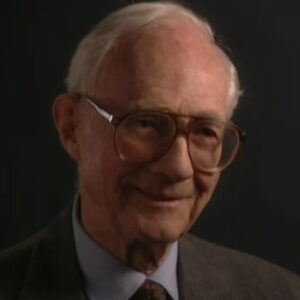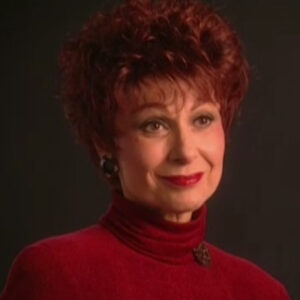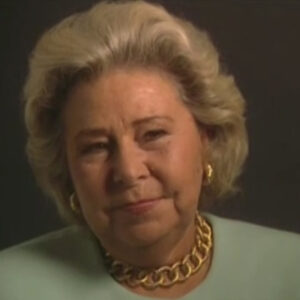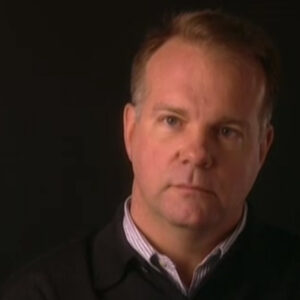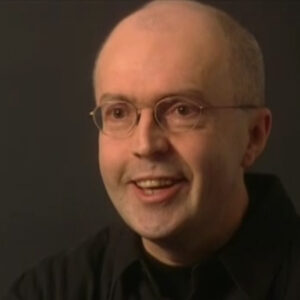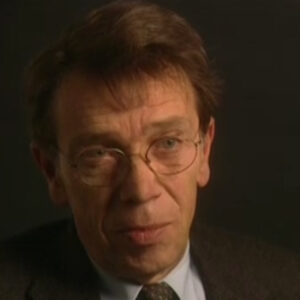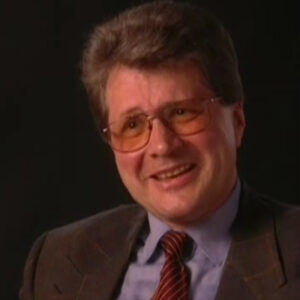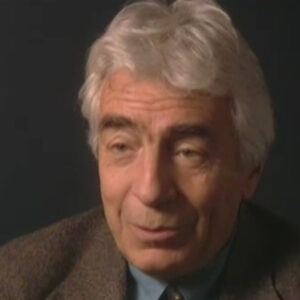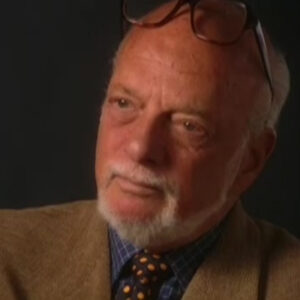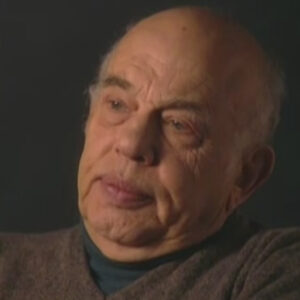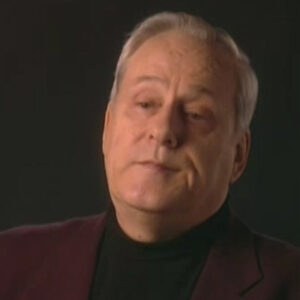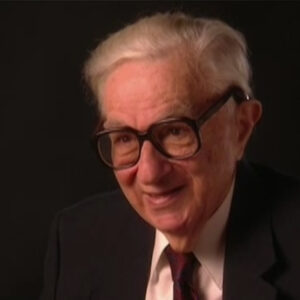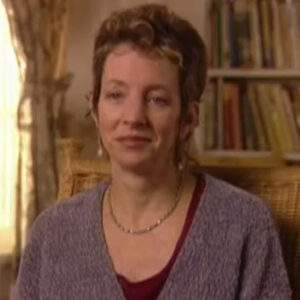Speaker I know that the army is concerned, but I know that you knew many for a long time and you actually met him 11 years before he started yuckiness countries no longer than that.
Speaker Yeah, that was about 30 years before it happened.
Speaker Sure. Over half a century ago, you were looking to make sure it was at Tanglewood.
Speaker Leonard was there to conduct the American premiere of Peter Crimes. And I was there as a scholarship student, as assistant to the stage director for Peter Grimes. So that’s how we met. And did you have had great rapport? In fact, at one point we were talking about collaborating on an opera, about my adapting James McCain’s serenade, which many had always loved as a novel, as an opera. And I don’t know whatever happened to the project.
Speaker We’ve discussed it for some years and it kind of fizzled out. But that was my first encounter.
Speaker Did you do any actual work, any writing?
Speaker He had a great idea. He had a great idea for the opening since the main character of Serenade is an opera baritone and the opening of Lenny’s opera was going to be the prelude to the last act of Carmen, all of a sudden you expect him Bernstein in music and would be busy because the curtain would then open and we’d see the leading character as s cameo in and the actual opera. Carmen, that’s good. Isn’t good.
Speaker Yeah, but he had a lot of collaboration, potential collaboration, fabulous ideas.
Speaker I realized that many of them I mean, well, every artist does know how much this much is accomplished.
Speaker And as much as thought about, you know, between that young people, at one point I remember inviting them to the University of Chicago, where I was a student, to lecture on the role of the composer in dance. And he came there and at our main auditorium on the campus, entranced thousands of of people with his talk and playing at the piano and went on into the night at one of the fraternity houses. I think it was that we all went and sat there at all hours of the night and night and morning to hear him talk and play some more about his role as a composer.
Speaker That seemed to be a role that he played a lot. I mean, that position, he found himself in a lot at the center of a party.
Speaker Yes. Yes. Can you talk a little bit about Lenny and such and all the parties and all of that? Or was that something you did not experience?
Speaker Not as much, no. But I guess like Gershwin, he sat at the piano and became the center of and talk a little bit about Peter Grimes, actually.
Speaker Sure. A pretty important production at Tanglewood. Can you talk about the production?
Speaker I mean, that what the nature was, what what went into it, why it was such a big deal, what Lenny brought to it, in particular, Benjamin Britten, the composer of the opera, had even though he had visited the United States prior to to this myth, it never was. Was that intrigued by. The colonies and there was a little bit of show me attitude, a student production of my newest opera, it’s not going to be much. But he was very surprised because it was a terrific production, in fact, of later productions. I’ve seen at The Matter other places. This had more guts and then than anything I’ve ever seen because it all stemmed from the conductor. And he really caught the spirit of Britain. And the subject of Grymes and the and the fury of it was wonderful. Wonderful. This is the second year or third year. What year? This was the first year after the war. Tanglewood started maybe on a few years before that 40. Right. Right. And this was 46. I think there was a hiatus of one or two years during the war and this was the start up again.
Speaker But many so many have. So many already had as.
Speaker Oh, sure. Oh yeah. He had been in the first year of Tanglewood. Yeah. But this was his his homecoming and he was now he had made it in New York and it was a celebrity returning to home.
Speaker Well I just moved in with him and Benjamin Britten came came for the jump a little bit more about his reactions to it.
Speaker Well, it had that attitude of show me and it worked. It was indeed a student production and Phyllis Curtin was in it who has reached some esteem, who was.
Speaker I forgot who else was in, but it was the reason Peter Grimes was doing it at Tanglewood is it was a Koussevitzky commission and the premiere taking place in England just a year before. And this was the American premiere and given to to the Boston Symphony because of the Koussevitzky connection.
Speaker And you really knew news? Well, I was. Well, we digress, but I was the assistant to the stage director who was Herbert Graff of Metropolitan Opera, the director, but he never came to Tanglewood that year. And in his place was Frederic Cohen, who was a composer of the Green Table. And then everyone got a little cold feet about him, I think. And they brought in Eric Crosier, who was the librettist of Peter Grimes, the kind of help the production. So at this point, I was assistant about three or four absent stage directors. So I found my niche and being a stage manager, assistant stage manager of production, but really actually being a stage manager at that stage managed to get around.
Speaker Yeah. Yeah. Well, the difference between stage manager, stage director, stage manager, it really is the nitty gritty of the production, the stage directors, the creative aspect who believes when the production is on, do you by chance remember Bernie Shaw?
Speaker Oh, yes, but he was around it behind Pittsburghese and having to interview this weekend and talk to them about it. But it was sounds like it was a very big deal, not just Bernie.
Speaker He was young. He said he’s got six experience, but it was a pretty big deal.
Speaker Well, it was theater, music and theater. I think before then, perhaps Britain had been exposed to the music that his brother was involved in, but not the actual opera world, which is pretty exciting.
Speaker What could you tell us from your first experience working with Lenny? What what could you tell about his gifts and in particular?
Speaker This is not going to be very spontaneous answer, so let’s go on to something else. Yeah, I know I’d have to think about it too much and I can’t really if it comes, it comes if it doesn’t work out.
Speaker So you did you did that program, the years of Chicago.
Speaker And did you have any weird correspondence back and forth? I think about Serenade and we saw each other in New York when I finally came to New York. But then, ah, our room. And the next probably was the Young People’s concerts. And the year of that was about 50 somewhere in 1953. Something like that. Yeah. Do you want the story of that? OK. All right.
Speaker Organizing. OK, yeah, about. Lenny, just picking up the phone calls, the daily, we told you already, CBS.
Speaker Yeah, I was on CBS doing everything but music.
Speaker I was doing the sports and the weather and all kinds of other other things. But on the outside, I was producing a series for the Little Orchestra Society, which is Tom Sherman, and it was a very successful young people’s children’s concerts. They were called and I thought, wouldn’t it be great to have them on television because they were very visual and fun. And we had people like Mary Martin was the sort of host of one of the concerts and several retired another. And they had kind of gimmicky things to them. We did The Firebird and and told the kids, look under your seats and there a feather from the Firebird and think they did. And they got excited. It was that kind of series cutesy, but it helped kids understand music. So I went to the head of programming at CBS and asked or I was kind of presented this as a viable series. And he in the meantime, was asking me all kinds of questions about my background. Unbeknownst to me, he was interviewing me for the producer Shepard, the Young People’s Concerts with Leonard Bernstein. And I was selling him the children’s concerts with Tom Sherman of. Fortunately, I didn’t get my series on, but I do get the job as the producer of the young people’s concerts and no one had known that I had known Bernstine before this. So it was kind of a nice reunion.
Speaker Just just talk about the idea of something where the two of you were going to do this for America television program, have they succeeded? And the idea that time been around?
Speaker No, we expected it to be one season, two seasons, and the arts would be satisfied. On CBS, it was the least produced program on television. There were no gimmicks as against the other series I was talking about before. What you saw was what you got and. Bernstine was especially adamant about that he didn’t want even he did not want visuals that would be seen by the home audience, that wouldn’t be seen by the people in the hall. He wanted really to be an honest, honest series, which, easy as that sounds, was very difficult because everyone wanted to guzzling up stuff to make it more appealing and attractive to the home viewer. But Lenny insisted that it be pure and that was the success of it, because the people in the hall and the people at home shared the same kind of experience and he never talked down to people, which was the most important part. He he made people reach to his level of commitment and understanding that.
Speaker Was this the single most telling success, getting all confused. OK, no, no, it’s.
Speaker When?
Speaker Yeah, the first lady was already done on the books and yeah, so he he had some experience with television, radio talk about.
Speaker I mean, the first time to tell.
Speaker Kind of round and delivered a election, and he must have known he has some capacity for that, but he wasn’t born television star. That’s what I’m getting at.
Speaker A natural affinity not only for teaching, but for being very comfortable doing it in front of millions of people in this kind of unusual. What do you think?
Speaker I know it wasn’t as unusual. He he was an actor and a conductor should be an actor. At one point when he was at Tanglewood, in fact, he was going to do a screen test for a film that was going to be made in a big Hollywood type film. I needed a leading man who knew something about the music business to it.
Speaker I forgot who he was going to play with. Was it Czajkowski? Oh, well, I don’t even know if if the screen test took place, but he talked about it a lot. Oh, my gosh. Would that be something that would be wonderful? Yeah. So it was a natural thing for him, in other words. Yeah.
Speaker So what was the procedure? What was the process? And so you two got together and we talked about what the nature of these brothers were going to be. And he said, I want it to be I don’t want a highly produced show their support. I want the audience at home to see the same thing that people.
Speaker Audience are the word 2800 seats in Carnegie Hall, but in later years we had two series. And after a morning and afternoon one, because they sold out primarily because of the television exposure.
Speaker So anyway, you talked about what your first meeting.
Speaker What are the young people’s concerns and what tell me about the process of creation, what you went through with these together when he was in the team? You told his story before you got together. Ladies, I’m having this thing now.
Speaker Yeah. What would how would the idea of letting them come up with the ideas, what would inspire them?
Speaker Well, yeah, just most of the subjects for the concerts stem from either what he was playing with the orchestra at the time, the particular pieces of music or things he was going to record. So the rehearsal aspect would be lessened, but then he would put weave together some disparate things into a subject which was very clever and good. But each program had a theme. What is music? What is sonata form? What is a mode? A lot of more questions, which, of course, he would answer. We would get together only after he wrote an entire script and he wrote it on legal side, you yellow pad and pencil with very precise punctuation and indications of examples that would be played by the orchestra. So it was all really fleshed out. Then we’d have our first meeting. A group of there were five or six of us where the production staff and kind of tear it apart if need be. But always let me have the last word and most everything, which is the way it should have been because it was one person’s concept for him, we could go back a little bit.
Speaker I don’t want to tell about the nature of those meetings because, I mean, I’ve read a little bit about them. They were very exciting and volatile and full of laughter and lots of fun.
Speaker Yeah, it’s kind of an.
Speaker The meetings were held at LENY Studio, either at the the ausborn where he had lived on 57 Street or later at the apartment on SEVENTY-NINE Street A. And they’d be a lot of fun because there were the personality of the five or six of us with the personalities. I should say we’re so different. There was Mary Rogers, who was my assistant, who was primarily concerned with the the storyline, with the words because she had written at that time several books for children and understood and had many herself. So she understood the minds of young people. John Criollo, who today is a splendid composer, was an assistant in terms of the music aspect. Jack Gottlieb was Bernstein’s assistant for years and he was the meticulous one who would prepare the cue sheets and bath 27 and a half to 32 and a half. And what was the cue marks were Candy Finkler was the associate producer, and she kind of kept us on a on an even keel because she believed in decorum and all the craziness and laughter and jokes and other kinds of stuff. She, she felt, took away from our seriousness, but there were great fun because Bernstine is great fun of. After we went through several changes in scripts, we were then kind of.
Speaker I’m getting away from your question.
Speaker I wish there would be shorter answers, because once I start to ramble, I lose it.
Speaker I’m just trying to get a sense. Yeah, yeah. Preparation that went into it went into the air, they say. So I mean, Lenny wrote every single word.
Speaker Yes. Yeah. And the reason he wrote every single word is because he couldn’t memorize other people’s words. It had to be his own.
Speaker And that’s another key to the success of it. It wasn’t a scripted thing, but rather it came from him. He had a certain AIDS and a teleprompter or the script in front of him to kind of refresh. But it all came right from him, directly through him and directly to the the audience, which is the key. Did he ever talk about I mean, we have come up with any ideas that you honestly don’t know, that that is a good idea?
Speaker I don’t remember that, you know. How did he find the time? I mean, I know that at the end of his life sort of saying I look back on the thing I was proudest of the whole career, whatever the ultimate taxes. But he very to manage.
Speaker No one thinks just doesn’t take an enormous amount of time. But as you know, a busy person is the one who gets the most things done and really has the motivation to do this. As you say, it was the most the single most important thing to him was to because he was a teacher, essentially a rabbi. And this was a way of teaching. And when I see people now these days and they say I grew up on the young people’s concerts and that’s why I go to concerts, that that’s why I collect records of it. It really made its mark. And I was brought here a lot about the fact that it was broadcast live for the first half of the year, maybe six or eight years live, and then came videotape or kinescope, actually. Then videotape, then color. The live aspect was very exciting. I still think live is wonderful because mistakes happen, but they give a certain electricity. In fact, wasn’t it a PR or something?
Speaker Did a live show recently, but it was a good idea.
Speaker But after that, then you have the capacity to edit it, to make a decision not to.
Speaker We edited applause. That’s about it. But there were no other kinds of things to edit. All the shooting was done was premeditated. We didn’t have seven slave cameras and backups and so on which concerts these days do. So it was. All thought out beforehand and as a live show even when it was on tape. That is the reason for that is to keep the spontaneity in electricity and the concept of Bernstine used to record his, you know, gramophone stuff with an audience for that very same reason to keep the the aliveness and the lack of editing.
Speaker That’s an interesting thing that he always he always felt that I mean, in the later part of his life, he really most was interested in the live recording as opposed to going into the recording studio. I think he, too, felt that there was an electricity that is generated by him. He had an audience. What happened between Lenny and an audience? Something very special. Can you tell?
Speaker It’s the ham quality, but I say that in a good way, that there is a transfer of of energy between people or among people, audience wise, that feeds the performer.
Speaker And if it is if it has the right ions and what other kinds of things it really helps helps the other. And one grows.
Speaker We talk about some of the high points from your memory. What is the particular episodes that stand out in your mind? Any particular anecdotes and funny stories or backstage stories? We’ve come to this musical highlight, anything that strikes you as an interesting story to tell about the.
Speaker I guess the high point about the young people’s concerts in terms of network television was the result of a.
Speaker Of a speech by Newton Minow, who was the FCC chairman at the time, and this was in the 50s somewhere.
Speaker He called network television a vast wasteland because it was full of it wasn’t sex and violence as much as it is today, but it had it was lamebrained. And in order to counteract that, CBS scheduled the young people’s concerts in primetime at seven 30 p.m. Rather than the 12 noon kind of ghettoised time that we had before. And it did several things. First, it it legitimized this whole idea of of the arts or cultural programming, serving a bigger audience. And it exposed so many more people to to the kinds of of of music that Bernstine was trying to interest them in at a time when they least expected it.
Speaker So they might be watching a sitcom at seven o’clock. There was over at 730. And all of a sudden here comes 104 men and a conductor who talked and they’d stick maybe five, 10 minutes. And a lot of them stayed on for the whole hour. Well, this was a remarkable thing. And we held those those time periods for, oh, several years until. But that was canceled and then we went back to a better time, maybe three o’clock on Sunday, so it went from 12 noon to prime time to sort of mid time. And that was great. And it couldn’t have happened without Bernstine. Could you tell me you.
Speaker My question will be part of the program help? I will have a show and expect to start with you.
Speaker Yeah. Did run one or two seasons. In fact, it ran.
Speaker And we didn’t have any reality shows that you don’t think about that, though. OK.
Speaker And he was 53, 53 with Bernstine. That’s. He went on after that. Yeah. We expected this to run one or two seasons. Yeah.
Speaker We expected the young people’s concerts to run one or two seasons, and it turned out to be maybe 11 or 12 years and we got sponsors. There were four of Bell Telephone, Sara Lee, Cheesecake, Shell Oil. They all joined the young people’s concerts and made them a running thing.
Speaker And how they chose to do. Well, I think we did that. Yeah, I think the key thing about that, right?
Speaker Yes, I think with Bernstine we did fifty three shows. I was about four shows a year.
Speaker So that doesn’t sound like that many years. But at the.
Speaker Fifty three or four times. Yeah, 48.
Speaker Yeah, I really don’t know, it’s when I’m with Michael Tilson Thomas and Yehuda Emanuel and other people, that’s what’s confusing me because they were OK. Well, we can start this again.
Speaker 53 shows like we expected the young people’s concerts to last one or two seasons, but it went on for 12, 13 years. I think we did 53 shows with Bernstine for the Young People’s concerts. It was four shows a year and they even garnered sponsors, which was unheard of for cultural programming. And how about the awards Legion? How many Emmys, Peabodys, various Alpha iota and things, Billboard Variety, International Awards from Czechoslovakia and France and any kind of award possible was given to young people’s concerts, the young people’s concerts.
Speaker Actually, the full title of the show is the New York Philharmonic Young People’s Concerts with Leonard Bernstein. That’s a good title. They really became a national institution. And for the the 53 concerts that that Bernstine did with the Philharmonic for for CBS, the ratings grew as our time periods changed and they were translated into 40 languages.
Speaker Go back to starting in 12 countries.
Speaker OK, yeah, OK, the young people’s concerts were translated into 12 languages and played in 40 countries in Hungary, which was then behind the Iron Curtain. The ratings for young people’s concerts were comparable or even outdrew the ratings for The Flintstones and Bonanza. The Peanuts cartoon, Charles Schulz immortalized the young people’s concerts, it became a pop thing. The numbers of people, perhaps 10 million, a show which is incredible when you think of a symphony orchestra playing Mahler and Beethoven and Weber’s excellent. OK, I can do things when I’m coach, but I can’t.
Speaker Yeah, OK. All right. You know, I feel like.
Speaker Yeah, if they were alive and it was live television. Yeah. I was always fascinated people and that even when the opportunity was there to edit, you and Lenny made the decision to essentially leave them alone, OK, you know, to retain the spontaneous quality.
Speaker When we first started the young people’s concerts, they were done live. So at 12 noon, what you saw in Carnegie Hall was broadcast at 12 noon in Scarsdale or or Newport, Rhode Island. But as the years went on, we got kinescope or videotape. And so it was possible to edit because we did two different shows, one at 12 noon and then an afternoon series at three o’clock so we could put things together. But the decision was made by Bernstine and I agreed not to edit at all because the spontaneity would be jeopardized and the electricity would be lost. Actually, this led to his doing recordings for his orchestral recordings were for records with an audience because the electricity was important.
Speaker It really works both ways, from conductor to audience, from audience back to conductor that go back over to the preparation, meticulousness, inflated lighting for campaign scripts and the perfectionism that he displayed in the search for the right word and kind of going right up to the last minute for the broadcast, who is, you know, still humming that.
Speaker Our script conferences with the five or six people on our CBS production staff were almost lessons in grammar and syntax and dictionary and thesaurus and all that stuff because words were Jalani most valuable and he would take his pencil, legal size pad scripts and meticulously put in the punctuation and find the right word. And we would have discussions about the right word and weigh the the value one against the other. He was he was really particular about the small things, which I find wonderful. And I find that really genius people like the Sparrow as well as the big picture.
Speaker That’s wonderful. And then you were with Larry when you heard that candidate that might.
Speaker I think it was November 22nd, 1963, we’ve just finished our rehearsal with the orchestra, had gone up to the green room of then called Philharmonic Hall, now Avery Fisher Hall. When a radio in the next room, it was the Library of the Philharmonic made it and there was an announcement that came over and the librarian rushed in to tell us that JFK had been shot.
Speaker We were, of course, stunned, everybody knows where he was at that particular time, on that particular date and was particularly telling because Bernstine was a personal friend.
Speaker We all left and Bernstine, I walked across Central Park not saying a word. Wondering whether the show would be the next day or not, not caring much about that, but it was an incredible way of saying. I was with Leonard Bernstein the day Kennedy was shot.
Speaker Boom, there is an additional thing that’s personal, but my birthday happens to be November 23 of.
Speaker Somehow, things had worked out that time. Where I have not done my preparation for the show that year I’ve had here.
Speaker Let’s skip that story. That’s too personal.
Speaker OK, yeah, the story about the way I think about 10, 30.
Speaker Yeah. There we tell that. Yeah. He had accomplished enough. And what that is all that story.
Speaker And then if you could talk a little bit about what that reveals, about letting you know that these sort of let’s just start with that.
Speaker I wish I could think of a specific.
Speaker Hmm, I don’t that I suppose in terms of the demands where he put on himself and the expectations they had of themselves and then use this as illustration.
Speaker He had so many demands on himself and wishes to achieve and to succeed that it made retired just to be with him on some of the things he did at the time. And Tanglewood, he had returned the prodigal son as a celebrity because he had just composed Fancy, Free and On the Town, a big Broadway show. He had just conducted the major symphony orchestras. He even had his own symphony orchestra in New York City Orchestra and in New York. And yet his birthday approached August 25th and he was so depressed. Why, because he hadn’t done anything, I have so much to do and I haven’t, and I’m despairing because I want to do this and that, and it was incredible to think that someone turning 30, doing as much as he had still was dissatisfied.
Speaker I wouldn’t buy that.
Speaker Oh, yeah, yeah, yeah, I can cut this. All right.
Speaker The point is only just turned 30 and he was in despair because he felt he had accomplished it.
Speaker Not just you said good her.
Speaker Oh, yeah. Yeah. Three out of four. OK.
Speaker OK.
Speaker When Bernstein and I were tangled together working on Peter Grimes, August 25th was approaching, that’s his birth date. And he was so despairing why? Because I haven’t done anything, and yet you think he had written on the town fancy free returning to Tanglewood as the prodigal son who had conducted orchestras all over the world?
Speaker And yet 30 meant. Where do I go from here? I haven’t done enough.
Speaker Obsession, obsession with time is something that run larger than life, almost as if he didn’t really think he was going to have enough of it.
Speaker Not at all. Not at all. Not one of you had a good life, 72. That ain’t bad. But no, it isn’t like Mozart or no.
Speaker They to talk to you about conflicts, about because clearly when you talk to them, that it’s a boring teacher and clearly loved it, they had to talk to you about his concerns, about who he really was because of those conflicts, about composing versus teaching to talk to you.
Speaker Yeah, I never felt that was a really. I’m sure it was a problem with him, but it didn’t seem to stop all these creative juices because he had time and did all these things, I think it was a self-imposed prod to get him to do it himself, to do more. So I think it worked for him. I don’t think it was a deterrent.
Speaker I think that’s an interesting thing, because there definitely are people who say Lenny would be Lenny. He wasn’t.
Speaker Well, it’s the what do you call it? There’s an adjective I can’t think of before the word that something discontent.
Speaker Not to praise the.
Speaker Creative people have continuous discontent, which pushes them to do more and more and more, and I think it’s a necessity and it’s something that creative people have to.
Speaker No more. Got something else?
Speaker Yeah, yeah, know what discontent is it? It’s it’s a romantic notion of sort of Byron esque thing. It’s like discontent. Anyway, he had it to the to the hilt. No, no, no.
Speaker It’s something that pushes you to do more and more and more than you ever expected you could do. And he did that.
Speaker He installed a stall him still that in in everyone else to want to do more than they thought they themselves could do, which is a tough drill master, but it works. And he did it on himself to the nines with that.
Speaker Yeah, yeah, yeah. Can you give me more specific?
Speaker He expected everyone to have a his standard, which is swell because then you reach for them and be to be able to do more than you. They thought themselves.
Speaker It made it really made mensches out of out of the people who worked with him.
Speaker And I miss that more than any other aspect about Bernstine, that he expected more of you and so you gave more.
Speaker That’s interesting. I think his orchestra’s probably for sure. Yeah. Yeah. Television contributed towards Lanying becoming probably the most famous musician of his time, which is if you could actually could say that that the next part I’m curious about how he handles the writing have changed.
Speaker And let’s go back to. Yeah. Television really did the.
Speaker A famous musician, it’s time for the question. I think.
Speaker This was pre Pavarotti, yeah, yeah. When when you get television coming into the the living rooms and they see someone who’s wielding a baton and they don’t know what it all means, but who can speak now, this is going nowhere.
Speaker You said a good. Oh, yeah. Of.
Speaker I would think that that strikes me as lucky, I mean, Lennie’s sexy, handsome and glamorous and stylish and all, which I guess you conductors certainly have that. Yeah, yeah. We had an image that is young, vibrant and fiercely sort of sexual, which I think contributed a great deal of television charisma to a bit of a glamorous event. Yeah.
Speaker Hmm. Hmm. Hmm.
Speaker We don’t don’t don’t you know, if I could just make a sentence that would be good, I don’t to go for that. Bernstine had a charisma and a glamour that really came across wonderfully on television and television is a very personal medium. When you see someone in your home, you not only know them, but you you feel you want to know them. And this this kind of builds and builds until it became the most.
Speaker Known popular musician and bird we were talking about when a celebrity, which, as far as I can see, you know, really put him almost in a movie star category in terms of people wanting to be in touch and get his autograph.
Speaker And, you know, way beyond what the LENY stayed the same at the core. But there is something that happens to people. And I’ve seen. With other people I’ve worked with that the more fame and the more notoriety and the more adulation, the more that person wants.
Speaker So if it isn’t a completely uphill thing with Bernstine, for example, it went up, up, up, and then there was a kind of a plateau. And then and that would disturb him greatly when people didn’t recognize him on the street, when he’d be driving in a cab and the cab driver didn’t know who he was. It hurt him a lot. I thought, where does this go?
Speaker And yet at the same time, there be a warmth, that essential warmth where people hadn’t seen for 30 years, just casual acquaintances and none from Cambridge, Massachusetts, that he hadn’t seen for 25 years, or somebody who whom I knew at in Budapest. He would pick up that conversation and the warmth and friendliness with them and was interested in in everyone and as as human beings.
Speaker So the warmth stayed, but the desire for more and more and more and more kind of tore at him as it does for most celebrities. It’s tough.
Speaker Yeah, I’ve often thought of it. Yeah. Yeah, I truly.
Speaker Let me talk to you if you don’t have a personal privacy issues.
Speaker Yeah. Oh, yes. Yes. And I consider them a very close friend. What is what would be the nature of some of those very personal kinds of conversations, kinds of things that we talk about, mostly about his life, where he was going and where he was coming from and what his happiness is and unhappiness is were.
Speaker What were they what made you happy with your money?
Speaker I don’t think I’ll go there. You know what made him happy?
Speaker It was it was very romantic. I think that’s pretty much documented, its great highs and lows, great love. What was your experience of that?
Speaker Jake.
Speaker Also, I got I got a flash of when I last saw him at Tanglewood, if I could just mention that. It was at his final concert. And afterwards, there was a reception at Saranac, which was the Koussevitzky House overlooking Stockbridge Bowl and Tanglewood, where we had first met 50 years before, and I had never seen him as tired and he couldn’t even stand up. And people would be around him and saying hello, and I was so shocked you hadn’t seen him for about six months and I remember just. Bending down and I guess I was sort of on my knees or something so we could look into each other’s eyes and said not a word and kissed each other and I left. That was the last time I saw him and I knew it would be the last time I saw him.
Speaker Do you think you knew that, too? Yes. Oh, yes, yes.
Speaker But he had a good life, I mean, 72 doing all he did was quite amazing.
Speaker Well, he looked pretty hard. Do you think that was a part of that?
Speaker We sort of say I’m like the guy sort of standing over the cliff and, you know, die hard. I’m sort of saying, hey, I can get away with all of this. And I could use that as a challenge to the world. And then he would stop and drink and stay up all night did.
Speaker But it didn’t seem to do much damage, really, considering that he started that, you know, in the teens and went on through it, through his entire life was pretty darn healthy till the very end.
Speaker How do you think he rated himself as a conductor, a composer?
Speaker I think one of the reasons he he felt the the young people’s concerts were his, quote, greatest single achievement, unquote, is because it was answering a need that no one else was around to fulfill.
Speaker There were other conductors. There were other composers, but there was no other.
Speaker Teacher.
Speaker That’s a very good point. And because they’re televising the last four.
Speaker Yeah, yeah, that makes sense.
Speaker And because they were televised, they would last forever.
Speaker They’re very good.
Speaker I mean, do you think that Lanny, I think this is true of many artists that it somehow seems to have been incredibly important to him to feel some kind of immortality through something lasting which relates back to the young people’s concerts.
Speaker I think that’s a really interesting point that you made about the uniqueness of that and his probably understanding that in some way that that was a really unique achievement that would last forever. And in fact, nobody’s ever felt that since then.
Speaker No, but his his other his other media last forever. His phonograph records, his of interpretations of the Beethoven nine symphonies or if his own works, they last forever. So it isn’t as if this were the only the only thing.
Speaker But I think it was closest to him because teaching was the highest, the highest, highest profession.

